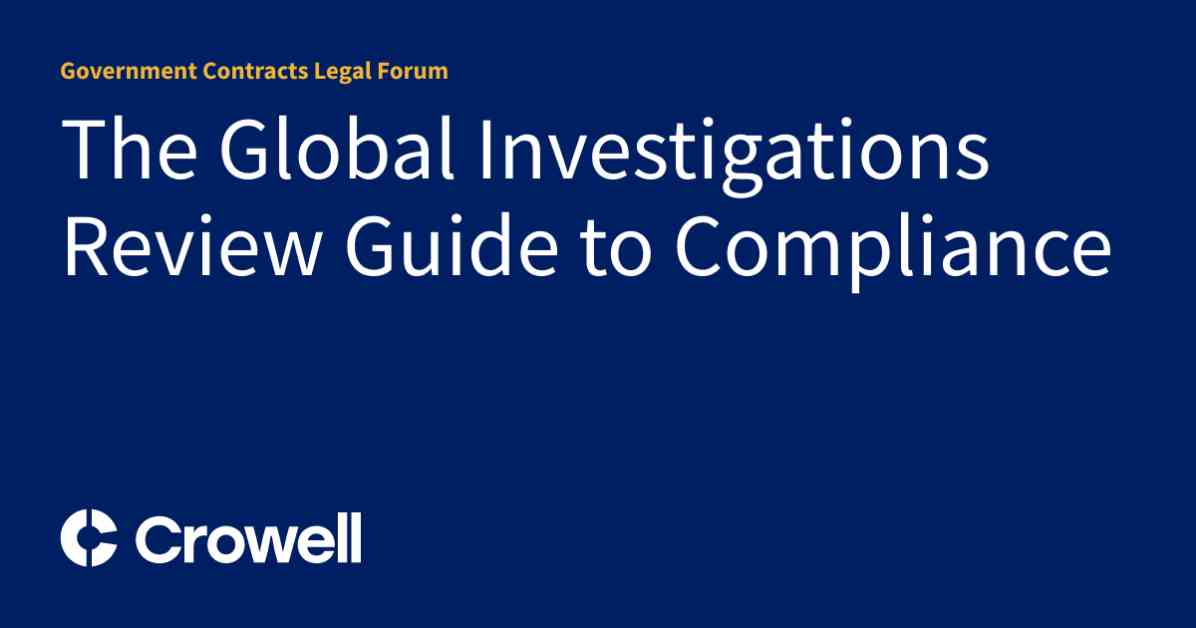The False Claims Act (FCA) stands as a crucial civil enforcement statute aimed at uncovering and rectifying fraud within United States government programs. Since its inception in 1986, the FCA has led to the recovery of over $75 billion in government funds. This statute holds individuals and entities accountable for knowingly submitting false claims or certifications to the government or unlawfully withholding money owed to the U.S. government. In the latest edition of the Global Investigations Review Guide to Compliance, Crowell attorneys present a comprehensive overview of the FCA, shedding light on its implications for both domestic and international companies and institutions.
The chapter delves into the intricacies of the FCA, offering practical insights into its requirements and implications. It provides a detailed explanation of the various issues that can arise during the investigation and litigation processes. Additionally, the chapter explores common theories of liability within key industries that remain prime targets for FCA enforcement actions, namely government contracts and healthcare.
Understanding the nuances of the False Claims Act is essential for organizations operating within the government contracting space. The FCA serves as a powerful tool for combating fraud and ensuring the integrity of government programs. By familiarizing themselves with the provisions of the FCA, companies can proactively mitigate compliance risks and safeguard themselves against potential enforcement actions.
One of the critical aspects addressed in the chapter is the significance of compliance in navigating the complexities of government contracts. Compliance with the FCA requires a thorough understanding of the regulatory landscape and a commitment to upholding ethical standards in all dealings with the government. Companies that engage in government contracting must establish robust compliance programs that align with the requirements of the FCA to avoid falling afoul of its provisions.
Healthcare is another sector that warrants close attention when it comes to FCA compliance. Given the substantial amount of government funding involved in healthcare programs, the industry is a prime target for FCA enforcement actions. Organizations operating in the healthcare space must be vigilant in ensuring compliance with the FCA to prevent potential liabilities and reputational damage.
In conclusion, the Global Investigations Review Guide to Compliance offers a valuable resource for companies seeking to navigate the intricate landscape of government contracts and FCA compliance. By staying informed and proactive in their compliance efforts, organizations can safeguard themselves against the risks associated with non-compliance and reinforce their commitment to ethical business practices.













